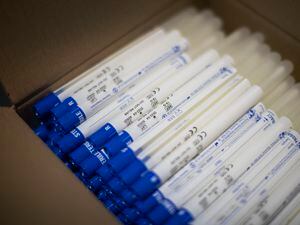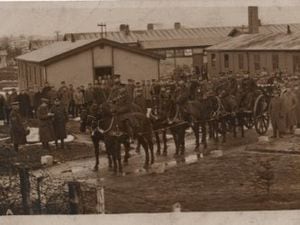Covid-19 transmission between workplaces and homes in West Midlands remains a concern
Transmission of Covid-19 between workplaces and homes in the West Midlands remains a concern, health chiefs have said.

Public Health England's Dr Lola Abudu said more needed to be done to tackle the issue and help drive down cases rates.
It comes as the current Covid-19 rates for the West Midlands – 157.8 per 100,000 – remains higher than the national average.
Dr Abudu, director for health and wellbeing at PHE in the West Midlands, said: "I know that they [employers] have done so much work already to try and keep workforces safe, but we need to do more in terms of the Covid-security within workspaces.
"What's happening is people go from work to home, car sharing and things like that, which we know is driving some of the transmission in some of these settings.
"So I'd ask those workspaces that remain open to do all they can to ensure the safety of their workforces – and particularly if you've got people travelling and coming in, what testing arrangements have you got in place to make sure Covid is not accidentally imported into the workplace?"
Dr Abudu said ventilation was key at home to ensure the virus isn't being transmitted from the workplace to the home – and then back again.
Pressure
Clive Wright, the Covid-19 regional convenor for the West Midlands, said transmission between workplaces and households was still "driving our figures".
He added: "The rates are high in the West Midlands still at the moment. In the West Midlands the case rates have fallen over the last seven days, across all ages, and continue to fall.
"That's also true nationally. We continue to see lower admissions to hospital but the NHS is still experiencing some significant pressure and has not gone back to normal levels.
"At 157.8 per 100,000 and this compares with the national average of 118.3 per 100,000. Our case rates remain high and the rate of reduction in the West Midlands over the last seven days is minus 13 per cent, just a little less than the national average of 15 per cent.
"Transmission between workplaces and households is still driving our figures."
The health chief also confirmed Operation Eagle – which took place in Walsall and Birmingham after strains of the South African variant of Covid-19 was found – had now been completed.
Mr Wright said the number of Operation Eagle projects, combined with new restrictions on overseas travel – the need to quarantine and therefore test – was putting "huge pressure" on the labs.
He added "overall" there seemed to be very little found in terms of new transmission, but said there was currently no date for when the results from the operation would be received.





